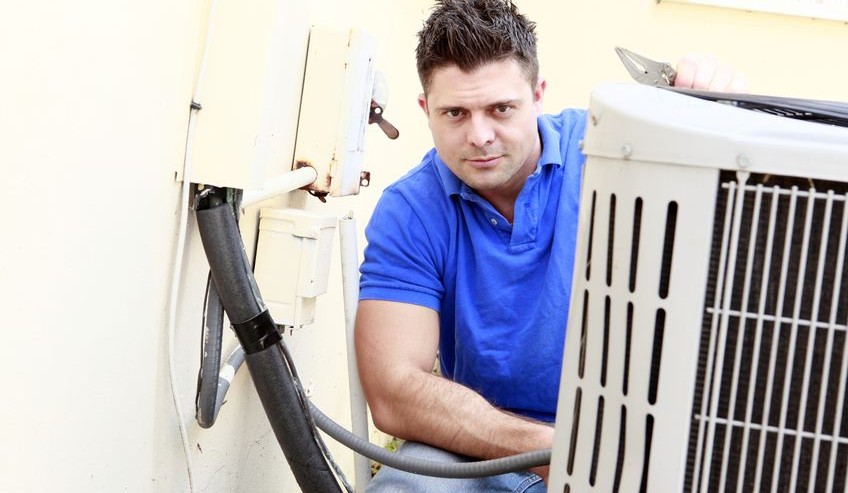Where to Find Leaks in Your HVAC System
While most HVAC maintenance means simply cleaning dust off of parts and tightening some screws, other components do eventually wear out from time to time. Leaks are one of the most troublesome problems that can result from system wear because the effects may take months or even years to notice. In the meantime, your energy bills not only go up by around 20 to 40 percent, but water and other substances can infiltrate your house and potentially cause structural damage as well as mold or mildew growth.
These problems are tricky to spot for the average homeowner, who is not usually looking in attics, closets and ducts for signs of trouble. This fact is why a licensed HVAC technician is needed from time to time to inspect your system’s components and ensure that there are no issues costing you money and even making you sick. From our contractors study we found several of the most common problems they look out for:
Ducts
Ducts are the most likely component of an HVAC system to encounter leaks. Luckily, ducts are also easily patched up, adjusted or replaced.
The metal or plastic that makes up ductwork can get worn or brittle over time. Tiny cracks or tears sometimes develop, leaking air into your walls, ceiling or attic. Other times the ducts are not properly secured to the register or connection input, requiring a contractor to realign the connection and ensure a tight seal. Loose connections can be created by something as simple as a homeowner adjusting the vent regularly, wiggling the duct loose over time.
A simple duct work inspection takes only a few hours, but can prolong the life of your system by years and save you around 20 to 30 percent on energy costs. Technicians can also blow out dust and debris from ducts in the process, increasing the air quality inside the home.
Refrigerant
Refrigerant is a chemical that easily changes from a liquid to a gas at room temperature. AC systems use refrigerant in a closed system to pull heat from inside the home to the outside and create coolness. Systems using a heat pump reverse the process to heat the home in the winter.
Under normal conditions, refrigerant does not run out or need to be replenished. Closed hoses and pipes keep the refrigerant sealed within the system for years on end. However, sometimes seals or hoses can crack and cause leaks.
Having an HVAC service and repair expert inspect your system can help detect problems related to leaking refrigerant. The technician will measure the levels of refrigerant and inspect the hoses if they suspect a leak. Keeping tabs on this component will keep systems running efficiently with lower costs and less equipment wear.
Drain Lines
AC units often create water as a byproduct of the refrigerant condensing/evaporation cycle. They remove this water through a series of PVC pipes or tubes to safely evacuate the water away from the system and the home.
Occasionally, these tubes become loose or get clogged. Water will then drip, pooling around the unit and the surrounding area.
For homes with indoor units, this problem can go unnoticed for years on end. In the meantime, the flooring and joists are soaked and mold may have begun to grow. This danger is why drainage lines must be regularly inspected to ensure that the equipment is evacuating water properly. Otherwise, the homeowner risks property damage, equipment shortouts or even toxic mold exposure.
All of these problems can be prevented or discovered and fixed promptly through regular system inspections. Homeowners should have their systems inspected regularly — ideally once a year and no longer than once every two years. Taking care of this duty keeps costs down, lessens the need for equipment repair and keeps everyone safe and comfortable.
Are you in the market for a new heating and air conditioning system? Click here to get free custom prices from reputable HVAC contractors. You’ll receive upfront pricing without having to invite a contractor to your home or even enter your contact information!





Comments
Leave a Comment